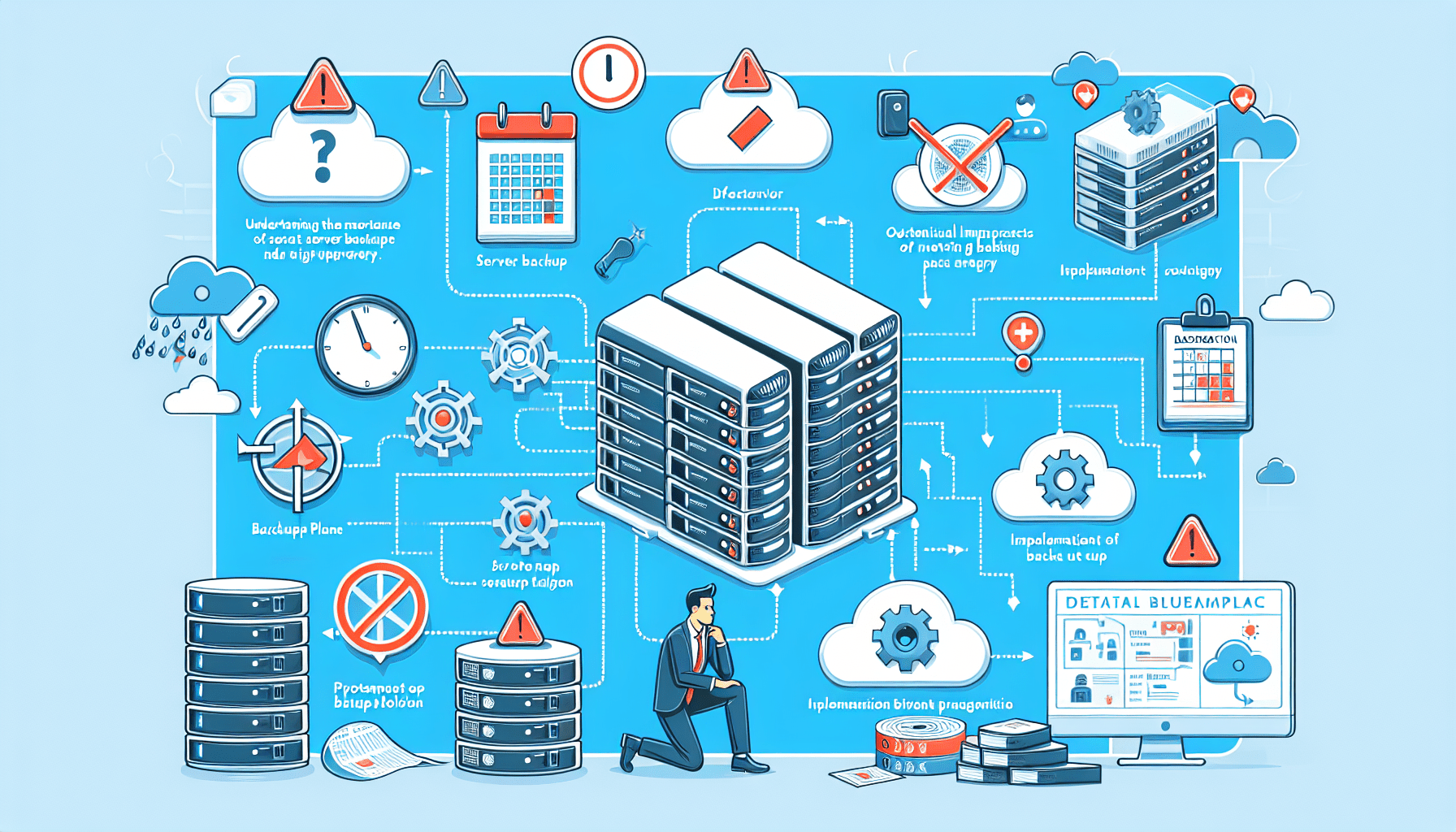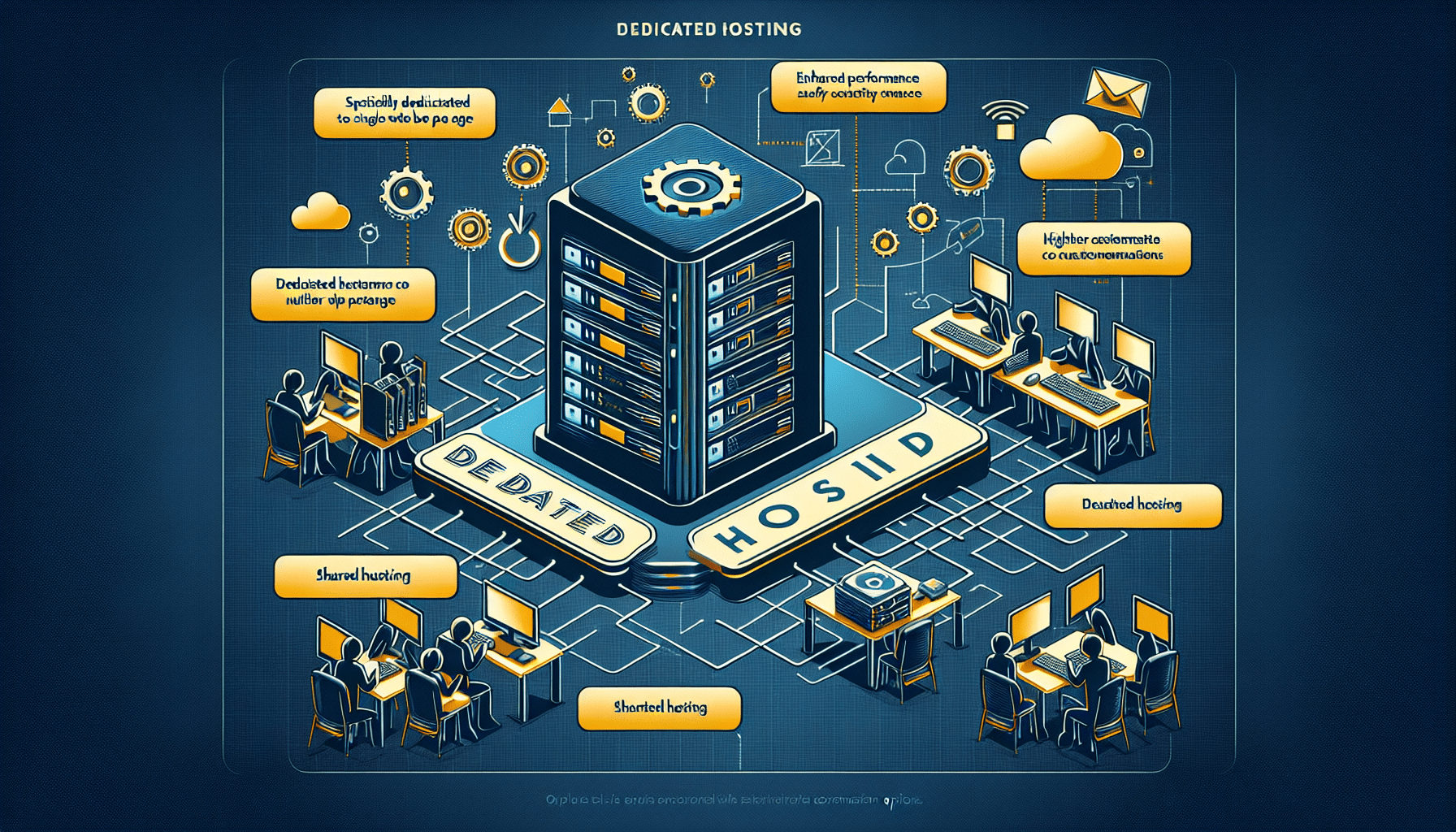Imagine having unlimited storage space, lightning-fast processing power, and the ability to access your data from anywhere in the world. Well, that’s exactly what cloud hosting offers. In this article, we will explore the ins and outs of cloud hosting, explaining what it is and why it has become increasingly popular in recent years. So, get ready to elevate your online experience as we unravel the wonders of cloud hosting.
Definition of Cloud Hosting
Overview of cloud hosting
Cloud hosting is a type of web hosting service that utilizes the resources of multiple servers and distributes them virtually to host websites or applications. Unlike traditional hosting methods that rely on a single physical server, cloud hosting provides a scalable and flexible infrastructure to meet the demands of businesses of all sizes. It enables users to access their data and applications from any device connected to the internet, making it highly convenient and accessible.
Explanation of cloud computing
To understand cloud hosting, it’s important to grasp the concept of cloud computing. Cloud computing refers to the delivery of computing services over the internet, such as storage, servers, databases, software, and more. Instead of relying on local servers or personal computers, cloud computing allows users to access and utilize these resources remotely. Cloud hosting is an extension of cloud computing, specifically catering to website and application hosting needs.
Key characteristics of cloud hosting
Cloud hosting exhibits several key characteristics that differentiate it from traditional hosting methods. These include scalability and flexibility, reliability and uptime, improved security, and easy and quick deployment.
Scalability and flexibility: Cloud hosting offers the ability to scale resources up or down based on demand. With traditional hosting, businesses often face limitations due to constrained resources. In contrast, cloud hosting allows businesses to easily handle traffic spikes and dynamically adjust their server resources to align with their current needs.
Reliability and uptime: By distributing resources across multiple servers, cloud hosting ensures high availability and minimal downtime. In the event of a server failure, the workload can be seamlessly transferred to other servers, resulting in improved reliability and uptime for hosted websites and applications.
Improved security: Cloud hosting providers often implement robust security measures to protect their infrastructure and customer data. These measures may include firewalls, encryption, intrusion detection systems, regular backups, and disaster recovery plans. Cloud hosting also allows for quick security updates and patches, reducing the risk of vulnerabilities.
Easy and quick deployment: Cloud hosting eliminates the need for physical hardware setup and maintenance. It offers a streamlined process for deploying websites and applications, enabling businesses to launch their online presence quickly. Additionally, cloud hosting allows for easy scalability as businesses grow and evolve.
Advantages of Cloud Hosting
Cost savings
Cloud hosting can result in cost savings for businesses in multiple ways. Firstly, it eliminates the need for upfront investments in hardware and infrastructure, as businesses can rent computing resources from cloud hosting providers on a pay-as-you-go basis. This means businesses only pay for the resources they need, avoiding unnecessary expenses. Additionally, cloud hosting reduces costs associated with maintaining and managing physical servers, such as cooling, electricity, and maintenance.
Scalability and flexibility
One of the significant advantages of cloud hosting is its scalability and flexibility. Businesses can easily scale their resources up or down based on demand, ensuring optimal performance and minimizing costs. This scalability makes cloud hosting particularly beneficial for businesses that experience seasonal or fluctuating traffic patterns. It allows businesses to handle sudden spikes in traffic without worrying about server limitations, providing a seamless user experience.
Reliability and uptime
Cloud hosting offers enhanced reliability and uptime compared to traditional hosting methods. By distributing resources across multiple servers, the risk of downtime due to hardware failures or maintenance is significantly reduced. In the event of a server failure, the workload is automatically shifted to other servers, ensuring minimal disruption for hosted websites and applications. This improved reliability and uptime can help businesses avoid revenue loss and maintain a positive online presence.
Improved security
Cloud hosting providers place a strong emphasis on security to protect their infrastructure and customer data. They implement a range of security measures, such as firewalls, encryption, and regular backups, to safeguard against potential threats. Cloud hosting also provides the advantage of quick security updates and patches, ensuring businesses stay protected against emerging vulnerabilities. With the expertise and resources of cloud hosting providers, businesses can benefit from a higher level of security compared to managing their own on-premises infrastructure.
Easy and quick deployment
Cloud hosting simplifies the process of deploying websites and applications. With traditional hosting methods, businesses often face challenges and delays in setting up physical servers. In contrast, cloud hosting allows for easy and quick deployment, enabling businesses to launch their online presence rapidly. It eliminates the need for hardware setup and maintenance, allowing businesses to focus on their core activities and achieve their online goals efficiently.

Types of Cloud Hosting
Public Cloud
Public cloud hosting refers to hosting services that are provided by third-party providers and accessible over the internet. These providers manage and maintain the underlying infrastructure, including servers, storage, and networking equipment. Public cloud hosting is often delivered on a pay-as-you-go or subscription basis, allowing businesses to scale resources as needed. It offers a cost-effective solution for businesses looking for flexibility and affordability.
Private Cloud
Private cloud hosting, on the other hand, involves hosting resources on a dedicated infrastructure either on-premises or through a third-party provider. Unlike public cloud hosting, private cloud hosting provides more control and customization options as the infrastructure is exclusive to a single organization. It offers enhanced security and privacy, making it suitable for businesses that handle sensitive data or have specific compliance requirements.
Hybrid Cloud
Hybrid cloud hosting combines elements of both public and private cloud hosting. It allows businesses to utilize a mix of on-premises infrastructure, private cloud, and public cloud services to meet their specific needs. This flexibility enables businesses to leverage the benefits of both private and public clouds. For example, businesses can choose to keep their sensitive data on a private cloud while utilizing the scalability and cost savings of public cloud services for less critical workloads.
How Cloud Hosting Works
Virtualization
A fundamental concept in cloud hosting is virtualization, which allows for the creation and management of virtual machines or instances. Virtualization technology separates the resources of a physical server into multiple virtual environments or virtual machines (VMs). Each VM can run its own operating system, applications, and processes, providing isolation and flexibility.
Virtualization enables cloud hosting providers to maximize the utilization of their physical servers by running multiple VMs simultaneously. With virtualization, businesses can easily allocate resources based on their requirements, such as CPU, memory, storage, and networking, without the need for physical hardware changes.
Distribution of resources
Cloud hosting distributes resources across multiple servers, creating a virtual pool of computing resources. This distributed architecture allows for high availability and fault tolerance. When a user requests a resource, such as a webpage or file, it is retrieved from the nearest server in the cloud network, reducing latency and improving performance.
By distributing resources across different servers, cloud hosting ensures that even if one server fails, the workload can be seamlessly shifted to another server without causing downtime or disruption. This redundancy plays a crucial role in maintaining availability and reliability for hosted websites and applications.
Load balancing
Load balancing is a key mechanism in cloud hosting that helps evenly distribute the workload across multiple servers. When a user accesses a website or application hosted on a cloud infrastructure, the load balancer routes the request to an available server in the cluster. This distribution ensures efficient utilization of resources and prevents any single server from becoming overloaded.
Load balancing also contributes to enhanced scalability and fault tolerance. With the ability to distribute traffic across multiple servers, businesses can easily handle high volumes of traffic without sacrificing performance or risking server overload. It allows for dynamic scaling, automatically allocating resources to meet demand fluctuations.
Redundancy and fault tolerance
Cloud hosting leverages redundancy and fault tolerance to ensure high availability and minimize the risk of downtime. By storing data and resources across multiple servers, cloud hosting creates backup and duplicate copies of information. This redundancy helps to safeguard against hardware failures, natural disasters, or other unforeseen events. In the event of a failure, the workload can be shifted to another server, ensuring uninterrupted access for users.
To further enhance fault tolerance, cloud hosting providers often replicate data and resources across different data centers located in different geographic regions. This distributed architecture ensures that even if one data center experiences an outage, the workload can be automatically redirected to a nearby, functioning data center.

Key Components of Cloud Hosting
Virtual machines
Virtual machines (VMs) are one of the fundamental components of cloud hosting. A virtual machine is a software emulation of a physical computer system that allows users to run multiple operating systems and applications on a single physical server. VMs provide the flexibility and isolation needed for cloud hosting by allowing businesses to allocate specific amounts of CPU, memory, storage, and networking resources to individual instances.
Cloud hosting providers manage and maintain the underlying infrastructure that hosts these virtual machines, ensuring optimal performance and availability for businesses.
Storage infrastructure
Cloud hosting relies on robust storage infrastructure to handle the vast amount of data generated by hosted websites and applications. This storage infrastructure is designed to provide high capacity, durability, and performance. It typically utilizes technologies such as distributed file systems, object storage, and block storage.
Distributed file systems allow data to be distributed across multiple servers, providing redundancy and fault tolerance. Object storage is a scalable and cost-effective solution for storing large volumes of unstructured data, such as images, videos, and documents. Block storage offers reliable and high-performance storage for applications that require low-latency access to data, such as databases.
Networking capabilities
Networking plays a crucial role in cloud hosting, enabling communication between virtual machines, storage infrastructure, and users accessing hosted websites and applications. Cloud hosting providers employ advanced networking technologies and protocols to ensure fast and secure data transfer.
Networking capabilities in cloud hosting include virtual private networks (VPNs) that establish secure connections between on-premises infrastructure and cloud resources, load balancing to distribute traffic across multiple servers, and content delivery networks (CDNs) that cache content in various locations for improved performance.
Management and automation tools
Cloud hosting providers offer a wide range of management and automation tools to simplify the deployment and management of websites and applications. These tools allow businesses to easily provision virtual machines, configure network settings, manage storage resources, monitor performance metrics, and automate routine tasks.
Management and automation tools provide a user-friendly interface and API (Application Programming Interface) access, enabling businesses to efficiently manage their cloud hosting environment. These tools help businesses save time, reduce human errors, and optimize their cloud infrastructure.
Common Use Cases for Cloud Hosting
Website hosting
Cloud hosting is widely used for hosting websites of all sizes. Whether it’s a personal blog, a business website, or an e-commerce platform, cloud hosting offers the scalability, reliability, and performance required to meet the demands of modern websites. With cloud hosting, businesses can easily handle traffic spikes, ensure high availability, and scale their resources as needed.
E-commerce platforms
E-commerce platforms heavily rely on cloud hosting to deliver a seamless shopping experience to customers. Cloud hosting provides the infrastructure and resources needed to handle high volumes of traffic, process transactions securely, and manage complex inventory and order management systems. The scalability and flexibility of cloud hosting allow e-commerce businesses to adapt to changing customer demands and seasonal peaks.
Application development and testing
Cloud hosting is well-suited for application development and testing environments. Businesses can quickly provision virtual machines and allocate specific resources to create development and testing environments that mimic production settings. With cloud hosting, developers can easily collaborate, test their applications at scale, and implement continuous integration and deployment pipelines.
Data backup and disaster recovery
Cloud hosting serves as an ideal solution for backing up critical data and implementing disaster recovery strategies. By storing data in multiple locations and utilizing redundant infrastructure, cloud hosting offers reliable data protection and ensures rapid data recovery in the event of data loss or system failures. Businesses can easily backup their data, replicate it across different data centers, and implement automated disaster recovery processes.
Considerations for Choosing a Cloud Hosting Provider
Scalability and performance
When choosing a cloud hosting provider, it’s important to consider their scalability options and how well their infrastructure can handle your anticipated growth. Ensure that the provider can scale resources quickly and efficiently in response to increased demand. Additionally, evaluate the provider’s performance metrics, such as network speed, latency, and uptime, to ensure a seamless user experience.
Service level agreements
Review the service level agreements (SLAs) offered by cloud hosting providers to understand the level of service they guarantee. SLAs typically specify uptime percentages, response times, and other service-related commitments. It’s important to assess these guarantees to ensure they align with your business requirements and expectations.
Data security and compliance
Data security is a critical consideration when selecting a cloud hosting provider. Evaluate the provider’s security measures, such as encryption, firewalls, intrusion detection systems, and regular backups. Additionally, consider if the provider complies with industry-specific regulations and standards, such as HIPAA or GDPR, if applicable to your business.
Support and customer service
Reliable support and customer service are essential when dealing with any technical issues or inquiries. Ensure that the cloud hosting provider offers prompt and responsive support through multiple channels, such as phone, email, or live chat. Assess the provider’s reputation for customer service by reading reviews and seeking recommendations from trusted sources.
Cost and pricing structure
Evaluate the cost and pricing structure of cloud hosting providers to ensure they align with your budget and business goals. Compare pricing models, such as pay-as-you-go, subscription-based, or discounted long-term commitments. Consider not only the initial costs but also any additional charges for storage, data transfer, or resource upgrades.
Top Cloud Hosting Providers
Amazon Web Services (AWS)
As the leading cloud hosting provider, Amazon Web Services (AWS) offers a wide range of services and features to cater to businesses of all sizes. AWS provides highly scalable and reliable infrastructure, advanced security measures, and a comprehensive suite of management tools. With a vast global network of data centers, AWS ensures high availability and low latency. It serves as a popular choice for businesses seeking robust cloud hosting solutions.
Microsoft Azure
Microsoft Azure is another major player in the cloud hosting market, providing a comprehensive suite of services and features. Azure offers a global network of data centers, ensuring low-latency access to resources. It provides highly scalable infrastructure, advanced security and compliance features, and seamless integration with other Microsoft products and services. Azure is an attractive option for businesses leveraging Microsoft technologies.
Google Cloud Platform
Google Cloud Platform (GCP) offers a robust and scalable infrastructure for cloud hosting needs. GCP provides advanced networking and storage capabilities, along with a wide array of services for artificial intelligence, data analytics, and machine learning. With its global network of data centers and strong security measures, GCP provides a reliable and performant infrastructure for businesses.
IBM Cloud
IBM Cloud offers a range of cloud hosting services, catering to both large enterprises and startups. IBM Cloud provides high-performance infrastructure, advanced security features, and extensive support for hybrid cloud deployments. It offers a wide array of services and tools for application development, data analytics, and artificial intelligence. IBM Cloud is a suitable choice for businesses seeking enterprise-grade cloud hosting solutions.
DigitalOcean
DigitalOcean is a popular cloud hosting provider known for its simplicity and affordability. It focuses on providing developers with a user-friendly interface, easy deployment options, and predictable pricing. DigitalOcean offers reliable infrastructure, scalable resources, and a wide selection of pre-configured server images. It has gained popularity among startups and developers looking for an accessible and straightforward cloud hosting solution.
Challenges and Risks of Cloud Hosting
Data privacy
One of the primary concerns when using cloud hosting is data privacy. Storing sensitive data in the cloud raises questions about who has access to the data and how it is protected. It’s crucial to evaluate the security measures implemented by the cloud hosting provider to ensure that data is adequately encrypted, and access controls are in place. Additionally, evaluate the provider’s compliance with privacy regulations and standards.
Dependency on internet connectivity
Cloud hosting relies on internet connectivity for users to access hosted websites and applications. While internet connectivity is generally robust, it is not immune to disruptions or outages. Businesses relying on cloud hosting should consider implementing backup internet connections or redundant providers to minimize the impact of connectivity issues. It’s also important to assess the provider’s track record for uptime and the measures they have in place to mitigate connectivity-related risks.
Potential vendor lock-in
Migrating from one cloud hosting provider to another can be challenging and costly, leading to the risk of vendor lock-in. Businesses may become dependent on a specific provider’s proprietary technologies or services, making it difficult to transition to an alternative provider. To mitigate this risk, consider using open standards and APIs that promote interoperability and ensure data portability. Evaluate the provider’s migration options and assess the level of effort required to switch providers if needed.
Limited control over infrastructure
With cloud hosting, businesses rely on the cloud hosting provider for managing the infrastructure and underlying systems. This reduced control over the infrastructure can be a challenge for businesses with specific customization or configuration requirements. It’s important to assess the level of control and customization options provided by the cloud hosting provider to ensure they align with your business needs. Consider the provider’s APIs and management tools to evaluate the extent of control you can have over your hosted environment.
Future Trends in Cloud Hosting
Edge computing
Edge computing is a growing trend in cloud hosting, which involves moving computational power closer to the network’s edge, near the source of data generation. This approach reduces latency and improves performance by processing data locally, rather than sending it to a centralized data center. Edge computing is particularly beneficial for applications requiring real-time processing, such as Internet of Things (IoT) devices, autonomous vehicles, and video streaming.
Serverless architecture
Serverless architecture is gaining popularity in cloud hosting, as it allows businesses to focus on their application logic without managing the underlying infrastructure. With serverless computing, businesses can run their code in small, event-driven functions that scale automatically. This approach eliminates the need to provision and manage servers, resulting in simplified deployment and reduced costs. Serverless architecture is ideal for applications with variable workloads and intermittent traffic patterns.
Containerization
Containerization is a technology that allows businesses to package their applications and associated dependencies into lightweight, isolated containers. Containers offer a consistent and portable environment, making it easier to deploy applications across different cloud hosting providers or on-premises infrastructure. This approach promotes scalability, agility, and efficient resource utilization. Containerization technologies such as Docker and Kubernetes have gained significant popularity in the cloud hosting ecosystem.
Artificial intelligence and machine learning integration
As the adoption of artificial intelligence (AI) and machine learning (ML) continues to grow, cloud hosting plays a crucial role in providing the necessary infrastructure and resources. Cloud hosting providers are increasingly offering specialized services and frameworks for AI and ML workloads. By leveraging the scalability and processing power of cloud hosting, businesses can accelerate AI and ML development, train models faster, and deploy intelligent applications efficiently.
In conclusion, cloud hosting offers a range of advantages, such as cost savings, scalability, reliability, improved security, and easy deployment. With different types of cloud hosting options, businesses can choose the configuration that aligns with their specific needs. Key components, such as virtual machines, storage infrastructure, networking capabilities, and management tools, play a crucial role in enabling cloud hosting services. Businesses can leverage cloud hosting for various use cases, such as website hosting, e-commerce platforms, application development, and data backup. When choosing a cloud hosting provider, considerations such as scalability, performance, security, support, and pricing are important. Top cloud hosting providers, including AWS, Azure, Google Cloud Platform, IBM Cloud, and DigitalOcean, offer reliable and feature-rich solutions. It’s essential to be aware of challenges and risks associated with cloud hosting, such as data privacy, dependency on internet connectivity, potential vendor lock-in, and limited control over infrastructure. Future trends in cloud hosting, such as edge computing, serverless architecture, containerization, and AI/ML integration, are shaping the evolution of cloud hosting services and opening up new possibilities for businesses.












